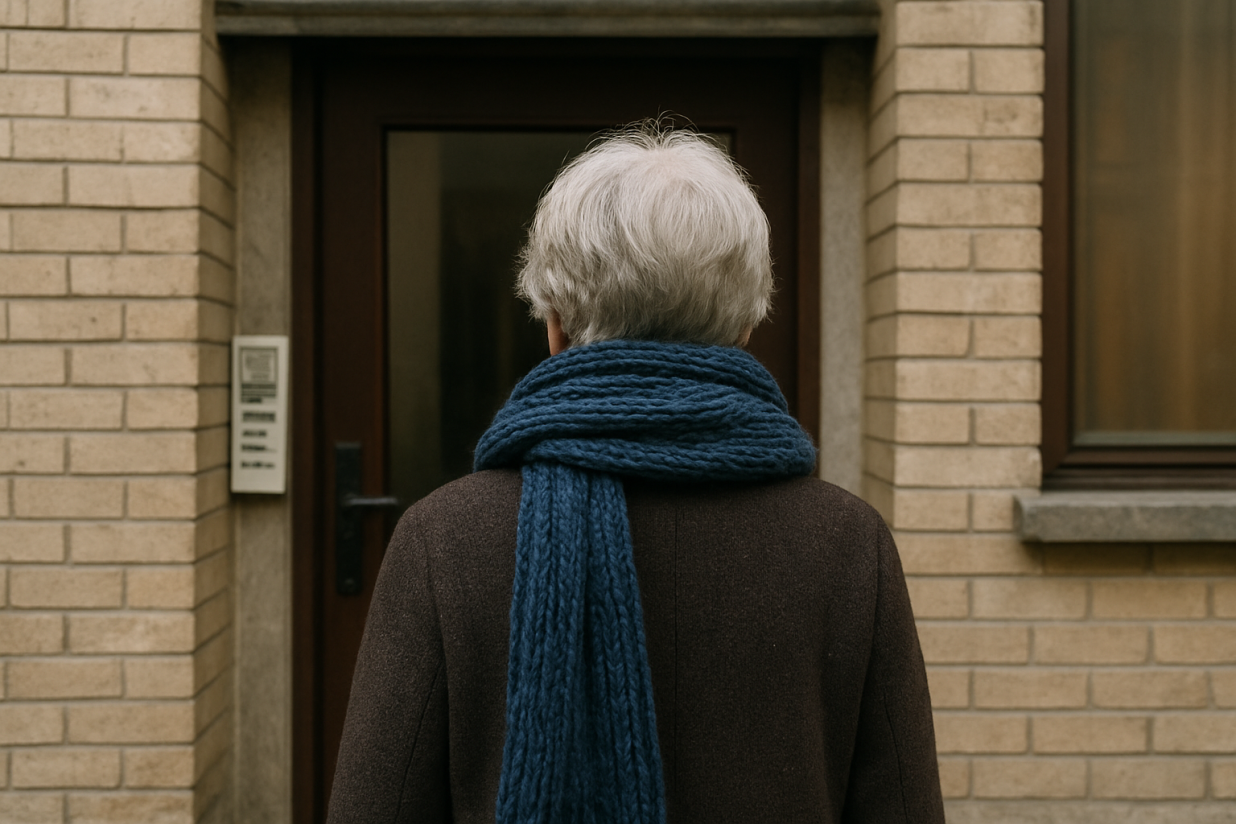

By Jane Seskin
My friend was dying. A slim woman with short curly gray hair. Large statement glasses. Smart, kind, generous. Eight years my senior. Stage 4 metastatic cancer spread to her bones.
It was a crisp Fall Day when I received the note describing her plans. No treatment. Hospice in place.
The message to friends was exquisitely written. I read it over and over. Cursed and paced around my living room for about fifteen minutes. Left the house to walk aggressively and repetitively around the block, while the sun had the audacity to shine.
I’ve known my friend for almost five years. Not nearly enough time. Both of us clinicians, writers, older women. We’ve shared each other’s words and work; essays, books, Letters to the Editor on social justice and trauma treatment, and now, as we grew older, questions of ageism.
Perhaps a year into our friendship, she asked what my favorite color was, and I said blue. A month later, when we met, she gave me a blue scarf she’d knitted watching TV.
We had regular get-togethers that involved talking and eating. We sat in our favorite booth (back corner on the right) in a popular restaurant near my home. It was early afternoon, and the room was somewhat empty. We had our usual vegetable antipasto and a Margherita pizza to split. For almost three hours, we talked books and politics and life and family and friendships and our thinning hair and the desire to do one activity a day, and this was going to be it, and the recent need for a nap. We laughed. Made notes. Shared a language.
I had unanswered questions and topics for discussion. There always appeared to be time for more – until there wasn’t.
I allowed myself to be sad. I was already missing her, and she hadn’t yet gone. Perhaps I was practicing. I talked to other friends about loss. Clipped a pedometer to my waistband and started walking. Went about my life and had moments where I didn’t think about death. Came home one day to find a voicemail she left: “Janie, I know you have a spare essay lying around in your computer. Send it to this magazine. Your writing fits in beautifully.” I breathe. Think how I’ve gotten used to and relied on her encouragement.
We emailed and talked on the phone. I visited her at home, and we walked to her small neighborhood park two blocks away, where we sat and chatted. And then were quiet together. Months later, when she entered hospice care, I sent a note to her after a visit. “So glad you liked the beach mural I taped to your wall. Glad staff didn’t take it down!”
A few days later, I called and left a message. “I had a thought on my way home. I know you’re going to die soon. When your soul leaves your body (I know your body is already spoken for.) and floats up to heaven, you might be greeted by my Mother. Take note. She was a formidable woman who might still be wearing a flowered house dress. Do not be deceived! She was smart and kind and organized and has probably met with everyone who has arrived, heard their stories, and introduced the newcomers to one another. I know she’ll watch out for you until you get settled.” She called me laughing. That was our good-bye.
Time passed. There was a wonderful Celebration of Life service. And then one day I had a question and thought my friend, deceased now three months, would have had the advice I needed.
On impulse, I boarded the bus for the thirty-minute ride to her neighborhood. Got out at the diner where we had ongoing cups of coffee and scones so buttery they left prints on our fingertips.
Walked past the post office where I once bought stamps (Pete Seeger, please), looked into the corner market where they made six types of dumplings you could microwave and containers of chicken sauced in barbecue, breadcrumbs, chili, and curry.
Crossed the street and was smack in the center of the filigree glass door of her apartment house.
Stood quietly. Took a breath. Took another. Asked my question. Waited. Nodded. Had clarity. Turned my back on the door and started home. Felt calm.
Almost prayer-like, I heard myself say: Dear Friend, wherever you are, you are missed. Your voice sits comfortably in my heart. I am grateful. Thank you for being in my life.
Jane Seskin is a licensed clinical social worker and the author of 13 books. Her most recent is the poetry collection: Older Wiser Shorter: The Truth and Humor of Life After 65, which you can purchase on Amazon, Barnes & Noble, and Bookshop. Her poems and essays have appeared in more than 40 publications (Cosmopolitan, Woman’s Day, Persimmon Tree, Next Avenue, NYT). She’s been a contributor to the Chicken Soup for the Soul Anthology series. Jane has been a writer-in-residence at the Vermont Studio Center and has been nominated for a Pushcart Prize. Follow her on Instagram and Facebook!